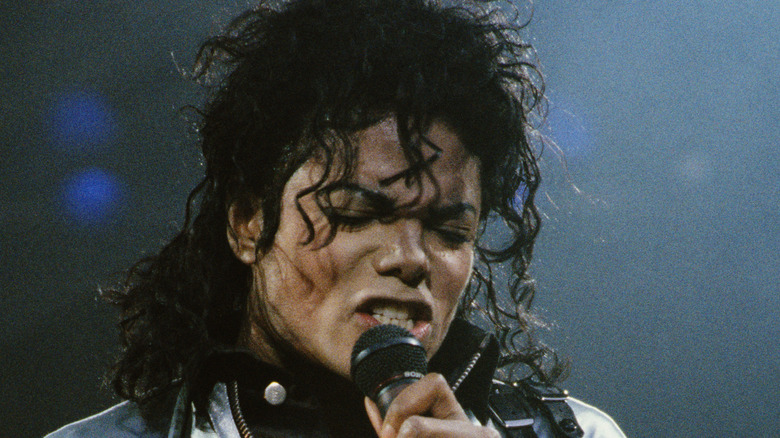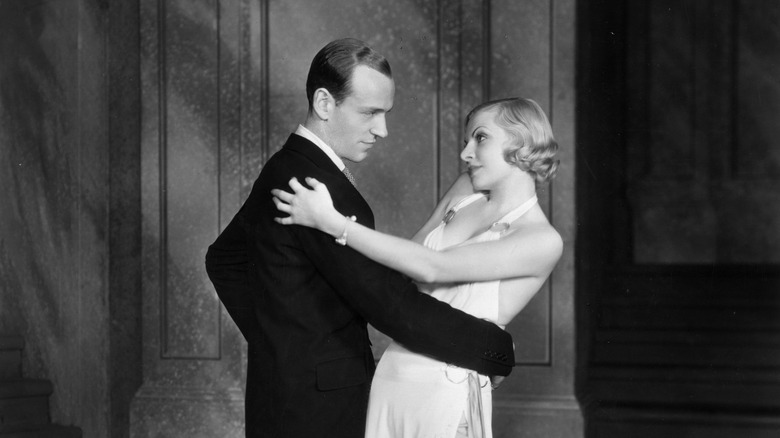The Real Reason Fred Astaire Once Called Michael Jackson
By all rights, Fred Astaire and Michael Jackson were two men who could have gone their entire lives without ever speaking a single word to one another. Indeed, the former was an elderly man by the time the latter was getting big in music, and further still, they came from completely different cultural contexts. Astaire was a dancer from Hollywood's Golden Age, and in his movies, he was a smiling and positive character, per Rolling Stone. Jackson, on the other hand, began his solo career in part by ditching the anodyne music of his previous group, The Jackson Five, in favor of songs that took on real issues, such as gang violence ("Beat It").
However, one thing that the two men had in common was the fact that they were both dancers. And, one particular night in 1983, Jackson unveiled a dance move that was so revolutionary that Astaire was compelled to call the Indiana native and talk things over.
Fred Astaire called Jackson's dancing 'angry'
May 16, 1983, would go down in history as one of the defining moments of popular culture history — or at least, the history of pop culture in the early 1980s. As AV Club reports, that was the night Jackson debuted the moonwalk while performing "Billie Jean" during the broadcast of "Motown 25: Yesterday, Today and Forever." A version of the dance move had been around for decades before Jackson was even born, but the "Beat It" singer made it his own, and indeed, it became his signature move.
Astaire was so moved that he was compelled to call Jackson on the phone, according to Rolling Stone, and in fact, the younger man was at first incredulous that Astaire was calling him. As the tale goes, Astaire called Jackson's dancing "angry." "You're an angry dancer. I'm the same way. I used to do the same thing with my cane," he said. And while Rolling Stone writer Steve Knopper notes that there's little to nothing in Astaire's oeuvre that suggests anger, Jackson certainly tapped into that emotion, particularly with "Billie Jean," which is about a woman falsely claiming that Jackson is the father of her baby.
Jackson would later say of the phone call that "... it was the greatest compliment I had ever received in my life."

